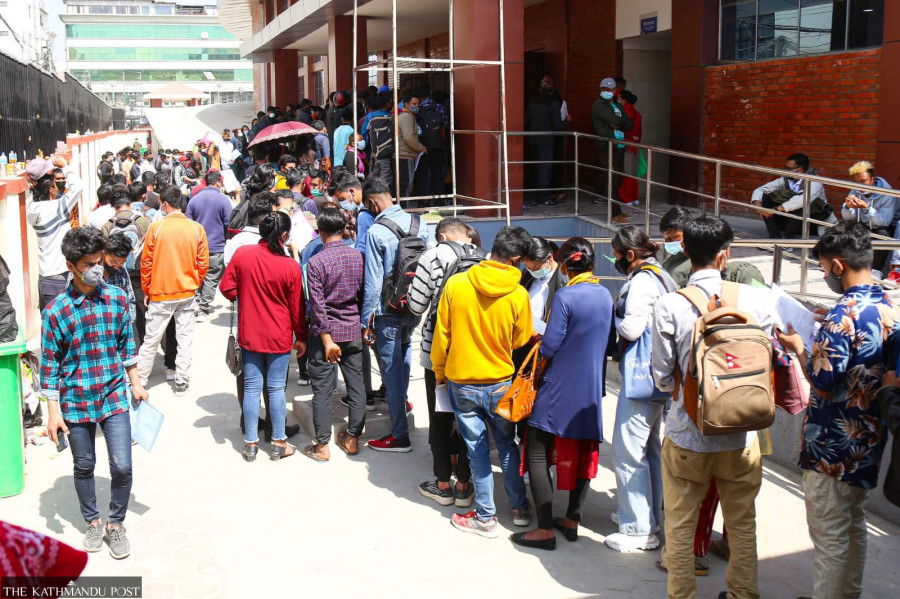Editorial
Failed delivery
People can get disillusioned with the state if they cannot get good services even at a high cost.
In your home district, from the time you apply for a passport, it takes typically a month to get the passport copy from the district’s administrative office, at a cost of Rs5,000. But for those in a rush, the Department of Passports in Tripureshwor, Kathmandu, pledges ‘fast-track’ delivery within three days, for Rs12,000. Those who need the document urgently—those with tight visa deadlines, for example—throng to the capital from different parts of the country, having to fork out extra money on travel, food and lodging—besides the already high passport charges. However, to their dismay, ‘processing’ can still take as long as a week. The amount they pay doesn’t always guarantee promised service, let alone information and updates on the problems or the resumption of services. The public thus experiences not just an administrative hiccup but also a violation of their right to seamless service delivery in return for the high cost they pay.
These incidents, however, are not new. The Department of Passports is notorious for faulty servers and malware attacks. In a recent Post report, officials cited a ‘rare technical glitch’. Unfortunately, such glitches are all too common. Last November, a virus that sneaked into some computers related to the passport application system affected more than 3,000 service seekers daily for a week. Even in January 2023, there were long queues at the DoP when the server suddenly went down, disrupting the services. Besides passport delivery, other services, including those of the Department of Transport Management, the Election Commission, Tribhuvan International Airport (TIA) and Tribhuvan University, are infamous for frequent delays due to cyberattacks and disruptions. At the TIA, Nepal’s only major air international gateway of note, flight operations often suffer from server glitches, adding to the hassles of international and domestic travellers alike.
Successive governments have promised top-notch service to the citizens and have also introduced e-passports and e-driving licenses. But having provisions on paper is one thing, being able to deliver on them is quite another. After the country embraced a federal structure, authorities decided to ensure smooth public services through local governments. But passport distribution from the districts, for instance, is sluggish, primarily due to staff shortages, forcing people to visit the Kathmandu office. But then the service isn’t satisfactory at the DoP either. Administrative negligence, paucity of skilled personnel to fix the problems and poor planning make matters worse. Cyber security experts have repeatedly pointed to the urgent need to update outdated infrastructure, provide sufficient security in integrated centres hosting government websites, and to work to improve service capacity and software. Yet their pleas have fallen on deaf ears.
Good service delivery is the best marker of a reliable government. But Nepali governments of all hues have continuously let its people down. Frustrated with the government offices’ failure to provide services as basic as licenses and passports without much hassle, many youths are seeking opportunities abroad. It is time to break this entrenched dysfunction. If these problems go unaddressed, people’s trust in the government will continue to erode and with it also their faith in the country as a place where they can see their future.




 9.7°C Kathmandu
9.7°C Kathmandu














